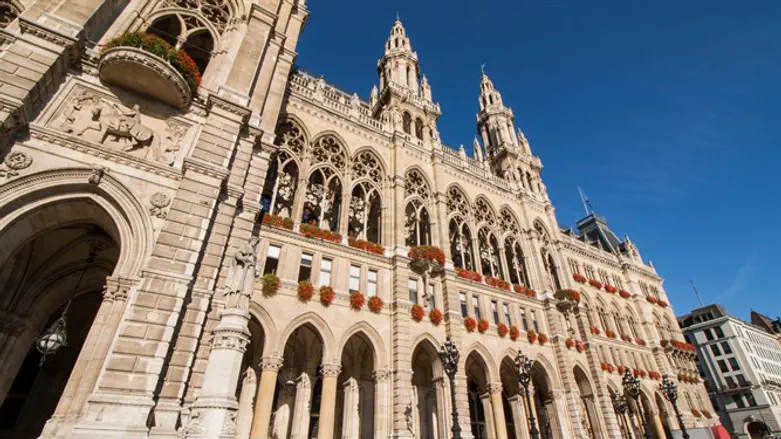
Activists are calling for a little-remembered balcony on the front of Vienna's town hall to be destroyed because it is where Adolf Hitler gave a speech in 1938, AFP reports.
Hitler made the speech on April 9, 1938 from a specially constructed wooden balcony erected in the center of the building's imposing neo-Gothic facade, but it was later replaced with a permanent stone one to commemorate the event.
The origins of the balcony had since largely faded from memory but an artists' collective entitled "Memory Gaps" is now calling for it to be destroyed, according to AFP.
The group argues the structure should be removed as part of the commemorations for the centenary of the first Austrian Republic, as well as the 80th anniversary of the "Anschluss", or annexation of Austria by Nazi Germany.
Memory Gaps has also suggested that prior to it being dismantled, a "speech for peace" could be given from the balcony on November 12, a hundred years to the day since the Republic was proclaimed.
Vienna's top cultural official, Veronica Kaup-Hasler, said she welcomed the debate and the fact that it had drawn attention to a forgotten detail of the town hall's history, a spokesman told the APA agency.
At the same time, the spokesman added that Kaup-Hasler prefers that the balcony remain in place accompanied by a clearer explanation of its history.
The head of the commission responsible for researching into and returning property stolen by the Nazis, Eva Blimlinger, agreed, telling the local Kurier newspaper, "This balcony is, like so much that resulted from national socialism, a part of our history."
Austria's relationship with its Nazi past remains a difficult issue even today, not least since the far-right Freedom Party (FPOe) entered into a coalition government last year.
Hitler was born in the northern Austrian town of Braunau. In December of 2016, the government took control of the building in the town in which the Nazi leader was born MPs approved an expropriation law specifically aimed at the property.
The government said it had been necessary to force a decision on the issue to stop the premises from becoming a neo-Nazi shrine.
The owner of the home challenged the move at the high court, which subsequently ruled in favor of the expropriation.
